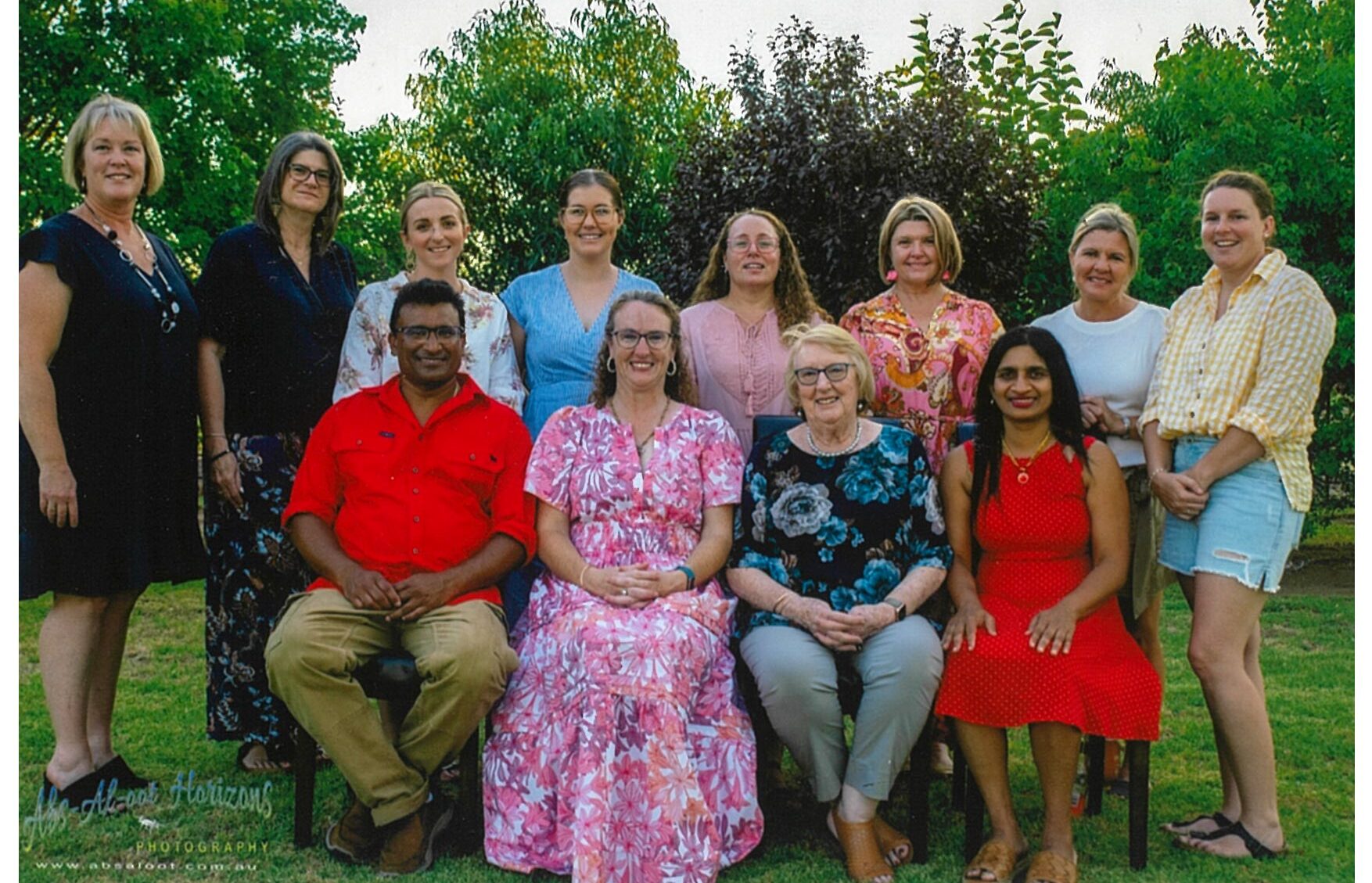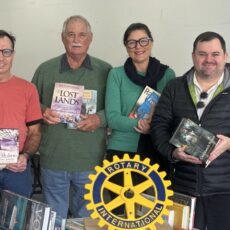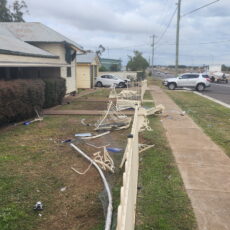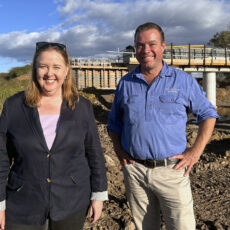Narrabri resident Carol Connole (née Houguet) celebrated her retirement from the Bridge Medical Centre with a party held in her honour at the home of Dr Rohana and Dr Dilini in February.
Past and present employees of the centre attended the event along with family and friends.
Unfortunately former practicing doctor Dr Kerry Moroney, colleagues Catherine Pearson and Nicole Bogdanoff and Mrs Connole’s son Scott and his family were unable to attend the celebrations.
The celebrations evoked many memories of good times in her career.
“It was a lovely farewell, kindly hosted by Dr Rohana and Dr Dilini,” Mrs Connole said.
“I always enjoyed my time at Bridge Medical Centre – the place always made me feel at home. It was like a second family to me.”
The special occasion was the culmination of 57-years with the practice, with Mrs Connole starting work at the doctor’s surgery as a young 18-year-old in 1965.
During this time Mrs Connole has worked for six doctors, Dr Charles Horsley (dec), Dr Bob Cameron (dec), Dr Kerry Moroney (ret), Dr Andrew Paas (ret), Dr Rohana Wanasinghe and Dr Dilini Pathiratne.
“I started working with Drs Charles Horsley and Dr Bob Cameron in November 1965 in a house converted to a surgery where the Adelong Motel now stands, in my starched white uniform, stockings and white shoes, and earning £8.60 per week,” Mrs Connole recounts.
“Four years later I spent 12 months overseas in 1969-70.
“When I was asked to return to work on my return, I was delighted and the rest is history.
“I married Brian in 1972, and we welcomed our daughter Fiona’s arrival in 1976 followed by our son Scott in 1978.
“Dr Kerry Moroney joined the practice in 1970 followed by Dr Andrew Paas in 1973 when Dr Cameron moved away to work in Sydney.
“There have been many, many changes since I started.
“We moved from the old surgery to Aroney’s Arcade in the early 70s, followed by moving again next door after the floods of the late 1970s, until we outgrew the surgery with the arrival of Dr Rohana Wanasinghe and Dr Dilini Pathiratne and moved to our current surgery in the main street.
“So many changes to recount have taken place over the years, I recall the arrival of Medicare in 1976, and prior to that everyone simply paid their way and claimed the fees back though their health fund.
“I remember completing a lot of claim forms for those having trouble making a claim.
“Many people came in and paid a couple of dollars off their account as they felt they couldn’t call a doctor during the night or the weekend if they had money outstanding.
“This was back in the days when doctors had the office phones switched through to their house phone on alternate nights and weekends as there was no on-call at the hospital.
“It was a nice gesture when some clients bought in home grown vegetables, a fresh yellow belly or a leg of lamb, or even a home brew, for the doctors to try.
“Accreditation was another big eye opener for us, when in 2003 we had to change our filing system, which to us, had worked perfectly well since Dr Horsley’s time.
“We would think it absurd that a no-smoking sign had to be erected for the waiting room, and an exit sign erected to let people know how to leave the premises.
“Next, all staff were required to have a certificate to do the job they had been doing for years, such as CPR, sterilising and computer work. At the time we all thought these changes were a big expense and quite unnecessary.
“As there was no pathology department in those days the doctors would draw blood samples in the surgery, the office staff would wrap the vials in cottonwool and cardboard, then a mad dash was made to the post office by 5pm to catch the mail run to Tamworth Hospital.
“Technology arrived in the surgery in 2003, when we purchased four new computers and printers.
“CDs took over from floppy disks, and we would receive updates by mail every three months to install on each computer.
“Sometimes the updating process would take all night.
“Then DVDs arrived which also had to be manually installed, and after doing this for around five years along came the ‘cloud’. Some of us did master what we had to do on the computer, but some of us, one in particular, not so well.
“Luckily the routine blackouts that came along in the 1970s and 1980s were long gone, where we would be advised of our power outage for a couple of hours, which usually happened in the afternoon when we would have to work with lanterns.
“If we had been using computers back then, we would have been in trouble.
“Computers did make a big difference to the running of the office, as there were no more eight-page receipt books to add up each night and allocate to each doctor’s income, no more typing X-ray and pathology reports on the patients’ files, and no more filing of the patients’ files.
“But with all the technology nowadays we seemed to be busier than ever with training and putting it all into practice.
“Even now our wages go straight into the bank for us, so there is no reason to have to make the trek to the bank each week for cash to be put into staff pay envelopes.
“Gone are the days when you could pop into the surgery or call and get an appointment on the same day.
“Another big change is the attitude of some patients in the waiting room, the surgery and emergency department.
“Whereas years ago, a drunk would come in and then move on – nowadays things can escalate quite quickly into a serious situation.
“Over the years things have definitely changed, from a two to three doctors practice with two to three reception staff to what we have today – four or five doctors, a practice manager, five nurses, and six reception staff.
“Drs Horsley, Cameron and Paas would be operating five mornings a week, returning back to the surgery for appointments, completing home visits on most days, and were on-call for the practice on alternate nights and weekends.
“Now with the changes at the hospital, theatre is only able to operate two days a week and is much more restricted on which operations can be undertaken in Narrabri, as most surgery has to be referred on.
“Dr Rohana is on the roster for the emergency department.
“My co-workers and patients gave me a lot of pleasure with their friendship over the years which I do miss.
“To have the wonderful bosses who were no hassle to work for and were all far too generous for their own good, it was my pleasure to have worked for them all and they have all became my extended family.
“Brian often said I lived and breathed work and never believed I would retire, even though I gave him my finishing date – for once in my life I have proved him wrong.”
To order photos from this page click here











